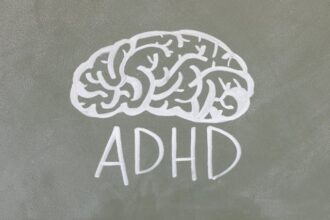Childhood maltreatment can persistently influence health well into adulthood, primarily affecting an individual’s risk of poor physical health and subsequent traumatic experiences, according to recent findings.
Those who suffer from emotional, physical, and sexual abuse or neglect during childhood are at a heightened risk of developing mental health issues that can last throughout their lives. The enduring nature of this risk, even decades after the initial maltreatment, remains a complex issue not yet fully understood.
Published in the Proceedings of the National Academy of Sciences, a study conducted by researchers from the University of Cambridge and Leiden University reveals that the lasting impact of childhood maltreatment on adult brains is due to an increased likelihood of obesity, inflammation, and trauma in adulthood. These factors contribute to poor health and well-being and influence brain structure and health.
The research involved analysing MRI brain scans from roughly 21,000 adults aged between 40 and 70, sourced from the UK Biobank. This data, combined with information on body mass index, CRP levels (a marker of inflammation), and personal histories of childhood maltreatment and adult trauma, provided a comprehensive view of the long-term effects of early adverse experiences.
Sofia Orellana, a PhD student at the Department of Psychiatry and Darwin College at the University of Cambridge, highlighted that the interconnectedness of childhood abuse or neglect with long-term mental and physical health problems, including adverse effects on the brain, immune, and metabolic systems, has been recognised but not fully explained. This interaction, she noted, affects critical aspects of health like heart health or the likelihood of developing diabetes.
The researchers employed statistical models to dissect these interactions further. They confirmed that childhood maltreatment increases the likelihood of higher body mass index and more frequent traumatic experiences in later life. These conditions often lead to immune system dysfunction, a consequence of chronic obesity and recurrent trauma.
Further analysis incorporating MRI data of the adult participants revealed significant changes in brain thickness and volume linked to increased body mass index, inflammation, and trauma, which were ultimately traced back to childhood maltreatment. These alterations in brain structure suggest physical damage to brain cells, impacting their functionality.
While the mechanisms at the cellular level in the brain still require further exploration, the researchers believe their findings significantly enhance the understanding of how adverse childhood experiences contribute to a lifelong increased risk of disorders affecting both brain and mental health.
Professor Ed Bullmore from the Department of Psychiatry and an Honorary Fellow at Downing College, Cambridge, expressed optimism about the implications of these findings. With a better grasp of the long-term effects of childhood maltreatment, the research could lead to the identification of biomarkers that signal increased risk of ongoing issues. This advancement could enable targeted early interventions for those most in need, potentially interrupting the cycle of ill health associated with early adverse experiences.
More information: Sofia C. Orellana et al, Childhood maltreatment influences adult brain structure through its effects on immune, metabolic, and psychosocial factors, Proceedings of the National Academy of Sciences. DOI: 10.1073/pnas.2304704121
Journal information: Proceedings of the National Academy of Sciences Provided by University of Cambridge








